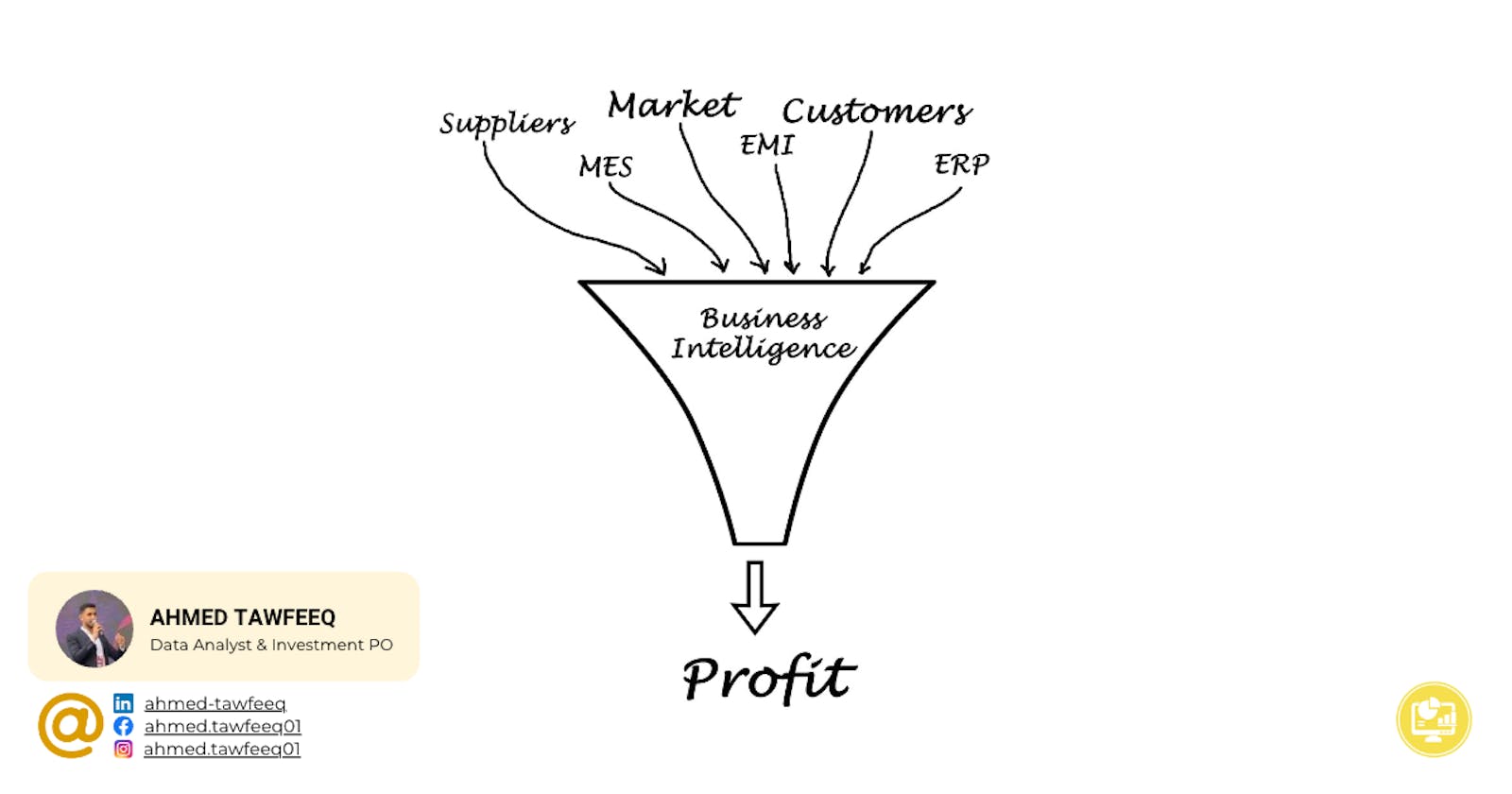The Power of Business Intelligence for Startups
Unlocking the Potential of Data-Driven Decisions
Table of contents
- What is Business Intelligence?
- How Can Business Intelligence Help Startups?
- What are the Benefits of Using Business Intelligence in Startups?
- Best 5 tools startups can use to benefit from BI
- Step-by-step guide: How startups can use Google Analytics for the power of BI?
- Step-by-step guide: How startups can use Google Analytics for the power of BI?
- Conclusion
Startups are increasingly turning to Business Intelligence (BI) to help them better understand their customers and the market they operate in. This is because BI is an invaluable tool for making better, more informed decisions and gaining a competitive edge.
In this article, I will discuss the importance of using business intelligence in startups and how it can help them reach their goals.
A shocking fact about business intelligence is that it can help startups increase their efficiency by up to 30% and improve their customer experience by up to 40%. This is due to its ability to analyze data quickly and identify new opportunities in the market.
Business intelligence can also help startups identify trends in customer behavior and preferences. For example, Amazon, the world’s largest online retailer, uses BI to analyze customer data and identify new opportunities in the market. This has enabled Amazon to create more effective campaigns and provide better customer service.
Furthermore, startups can use BI to develop targeted campaigns that are tailored to their customers' needs. This can help them increase customer satisfaction and loyalty.
Most importantly, startups can use BI to track and analyze customer behavior. This can help them better understand their customers and develop targeted campaigns that are tailored to their needs.
What is Business Intelligence?
Business intelligence is the practice of using data to make informed decisions. It involves collecting, analyzing, and transforming data from a variety of sources to gain new insight into a business and its customers.
With the help of BI tools, businesses can develop a better understanding of their customers, their markets, and their competitive landscape. This helps them to make smarter decisions faster and with more confidence.
How Can Business Intelligence Help Startups?
Business intelligence can be particularly beneficial for startups, as it helps them better understand their customers and the markets they operate in.
By leveraging BI, startups can:
Get a better understanding of their customers and their preferences.
For example, a startup can use BI to analyze customer data and gain insight into their demographics, habits, and interests. This can help them develop targeted campaigns and provide better customer service.Startups can make better decisions, faster.
For example, a startup can use BI to analyze data quickly and identify new opportunities in the market. This can help them stay ahead of the competition and make more informed decisions faster. Additionally, startups can use BI to develop the beforementioned targeted campaigns that are tailored to their customer's needs and increase customer satisfaction.Track and analyze customer behavior.
With the help of BI, startups can track and analyze customer behavior. This can help them better understand their customers' needs and preferences. For example, a startup can use BI to track customer purchases and analyze their behavior to gain insights into their buying habits.
What are the Benefits of Using Business Intelligence in Startups?
The benefits of using business intelligence in startups are numerous. Here are just a few of the key benefits:
Increased efficiency: With the help of BI tools, startups can analyze data quickly and make decisions more efficiently. This can help them save time and money.
Improved customer experience: By leveraging BI, startups can gain a better understanding of their customers and their preferences. This enables them to develop more targeted campaigns and provide better customer service.
More informed decisions: By using BI, startups can make more informed decisions. This can help them identify new opportunities in the market and make better decisions faster.
Best 5 tools startups can use to benefit from BI
Tableau: Tableau is a data visualization tool that enables startups to quickly analyze data and gain new insights.
Google Analytics: Google Analytics is a web analytics platform that helps startups track and analyze customer behavior.
Microsoft Power BI: Power BI is a business analytics tool that helps startups make better, more informed decisions.
IBM Watson: IBM Watson is an AI-powered analytics platform that can help startups uncover new opportunities in the market.
Sisense: Sisense is an analytics platform that helps startups quickly analyze and visualize data.
Step-by-step guide: How startups can use Google Analytics for the power of BI?
Google Analytics is an effective tool for startups to leverage the power of BI. Here is a step-by-step guide on how startups can use Google Analytics to gain insights into their customers and the markets they operate:
Sign up for Google Analytics: To get started, sign up for Google Analytics and add the tracking code to your website. This will enable you to collect data about your customers.
Set up goals: Set up goals in Google Analytics to track customer behavior. This will enable you to gain insights into what your customers are doing on your website.
Create dashboards: Create dashboards in Google Analytics to visualize your data. This will help you quickly identify patterns and trends in customer behavior.
Analyze customer data: Use Google Analytics to analyze customer data and gain insights into their demographics, habits, and interests.
Identify new opportunities: Use Google Analytics to identify new opportunities in the market. This will help you gain a competitive edge.
Step-by-step guide: How startups can use Google Analytics for the power of BI?
Google Analytics is an effective tool for startups to leverage the power of BI. Here is a step-by-step guide on how startups can use Google Analytics to gain insights into ir customers and the markets they operate in:
Sign up for Google Analytics: To get started, sign up for Google Analytics and add the tracking code to your website. This will enable you to collect data about your customers.
Set up goals: Set up goals in Google Analytics to track customer behavior. This will enable you to gain insights into what your customers are doing on your website.
Create dashboards: Create dashboards in Google Analytics to visualize your data. This will help you quickly identify patterns and trends in customer behavior.
Analyze customer data: Use Google Analytics to analyze customer data and gain insights into their demographics, habits, and interests.
Identify new opportunities: Use Google Analytics to identify new opportunities in the market. This will help you stay ahead of the competition and gain a competitive edge.
Conclusion
Business intelligence is an invaluable tool for startups. It helps them gain a better understanding of their customers and the markets they operate in, enabling them to make smarter decisions faster and with more confidence.
By leveraging BI, startups can increase their efficiency, improve their customer experience, and make more informed decisions. This can help them read to gain a competitive edge.
It is clear that BI can be a powerful tool for startups, and I encourage startups to take advantage of its benefits.

